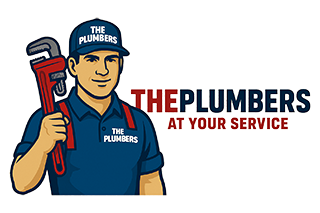Choosing the right way to improve your home’s water quality can be challenging. Many homeowners wonder if combining a filtration unit with a softener offers the best results. This combination targets both impurities and mineral buildup, aiming to improve taste, appearance, and appliance performance. At The Plumbers, we often guide customers through the benefits and limitations of this setup so they can make confident choices. If you are considering a water filtration and softener in Broward County, FL, it helps to understand how the two systems work together and where they may fall short.
How Filtration and Softening Systems Work Together
When paired, filtration and softening systems address two different concerns. A water filtration system installation focuses on removing contaminants like chlorine, sediment, and some heavy metals. This can improve taste, reduce odors, and make the water safer for consumption. A softener, on the other hand, reduces calcium and magnesium levels that cause scale buildup. Combining them means you’re tackling both quality and hardness issues in one setup, offering a more complete solution for your home.
Advantages of Combining the Two Systems
A whole house water filter paired with a softener can deliver water that is both cleaner and gentler on your plumbing. Reduced mineral buildup can extend the life of pipes, fixtures, and appliances. Cleaner water may also enhance the performance of soaps and detergents, allowing you to use less product. In households where both hardness and contaminant levels are high, this combination can provide noticeable improvements in taste, clarity, and household maintenance needs.
Potential Drawbacks to Consider
While there are advantages, it is important to be aware of possible limitations. Combining systems can require more upfront investment compared to installing one unit. Maintenance can also be more involved, as both systems have separate service needs. Some homeowners may find that a water softener installation is unnecessary if hardness levels are already low, making filtration alone more practical. Additionally, certain water sources may require specialized equipment beyond standard filtration and softening to address unique contaminants.
When a Reverse Osmosis System Might Be Better
In some situations, a reverse osmosis system alone can be more effective than a combination setup. RO units filter water at a microscopic level, removing many dissolved solids that softeners and standard filters cannot address. While this can deliver exceptional purity, RO systems are typically designed for drinking and cooking water, not for treating an entire household supply. This makes them best for targeted applications rather than full-home solutions.
FAQs
Q: Do I need both a filter and a softener if my water tastes fine?
A: Possibly not. If your water tastes fine but you notice scale buildup, a softener alone may be sufficient. Water testing can confirm your needs.
Q: Can a combined system reduce all types of contaminants?
A: No. While many common impurities are addressed, some contaminants require specialized filtration beyond what a standard combined system can provide.
Q: Will combining systems increase my water pressure?
A: Not necessarily. In fact, improper installation or clogged filters can reduce water pressure, so professional setup as well as upkeep are important.
If you’re considering an upgrade, The Plumbers can help design a system that meets your exact needs. We have been serving the community since 1996, offering licensed and insured services with same-day options. Call us today to schedule a consultation.
our general plumbing solution
At The Plumbers, we offer various solutions to meet every general plumbing need you may have.


